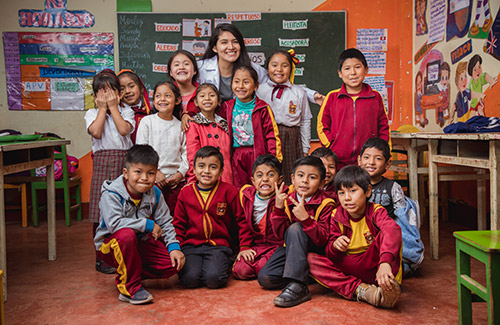When first established by a United Nations' (UN) Resolution in 1954, the UN General Assembly suggested, "Universal Children's Day be observed on the date and in the way each considers appropriate." Although every country doesn't celebrate Universal Children's Day on November 20 (an International Children's Day also exists in June), Universal Children's Day has been held on November 20 since 1956.
Helping assign the appropriate significance to November 20 as the date to honor children, the UN adopted the Declaration of the Rights of the Child on November 20, 1959. The Declaration set forth 10 principles to safeguard children and affirmed a responsibility to protect children before and after birth.
Children's Rights are Human Rights
On November 20, 1989, 30 years after adopting the Declaration of the Rights of the Child, the UN adopted the Convention of the Rights of the Child (CRC), the most rapidly and widely ratified international human rights treaty in history.
The CRC helped change the way children are viewed and treated. Children are no longer viewed as the property of their parents. They are not helpless, and they are not objects for charity. A child is a human being and is entitled to be treated as one.
"Children's rights are not special rights, but rather the fundamental rights inherent to the human dignity of all people." — UNICEF
The CRC also set out a number of specific children’s rights including:

- the right to life
- the right to health and health services
- the right to a family
- the right to education and play
- the right not to be tortured or subjected to inhuman treatment or punishment
- the right to be protected from exploitation, violence and abuse
- the right to have a voice, to be heard
- the right not to be discriminated against
- the right to freedom of expression, thought, conscience and religion
By specifying a child's rights, the CRC is helping create a world in which every child is able develop to his or her fullest potential, which is precisely the business we're in.
Developing Children to Their Fullest Potential

We look after the welfare of impoverished children and help them develop holistically: mind, body and spirit.
Our focus and commitment is long-term and relational.
We invest our time for a lifetime, while providing personalized and individualized attention tailored to gender, health, age, cultures and family situations.
Our commitment to holistic child development of children in poverty is unique among child sponsorship organizations. Unlike many organizations that implement community-development programs, we are child-focused, and our programs run in partnership with thousands of local churches in the developing world.
A local church partner is always the implementer of child development work resourced through Compassion. This is due to our belief in the church’s Biblical mandate as salt and light in its community and our desire to equip the church to play its role. No matter how many NGOs come and go, the church will always remain.
Each church we partner with operates a child development center providing a minimum of four to eight hours of programming each week, for at least 48 weeks a year. At the centers, children receive:

- health care and training, which includes exercise, regular physical exams, dental care, vaccinations, instruction in physical and dental hygiene, preventative health care and help with advanced medical care, if needed
- snacks, meals, clean water and supplemental nutrition support
- educational assistance such as tuition to allow for school attendance or regular participation in alternative educational activities, as well as opportunities to learn income-generating and vocational skills
- spiritual guidance and social and emotional support — learning basic social skills, teamwork, art, drama, dance, mentoring, etc.
- materials and supplies including hygiene supplies (e.g., soap, toothbrushes, toothpaste), center supplies (e.g., paper, writing utensils, games, toys), fees or costs associated with field trips, camps, drama, art and dance activities
- individualized care and attention: school progress reports, center attendance records, health records, home visits by social workers and adult supervision
- access to special services such as surgeries and disaster relief assistance
It’s only through a careful blend of holistic care that children can mature fully and escape the cycle of poverty. And it’s only through our Child Sponsorship Program that children have experienced empirically validated improvements in their circumstances.